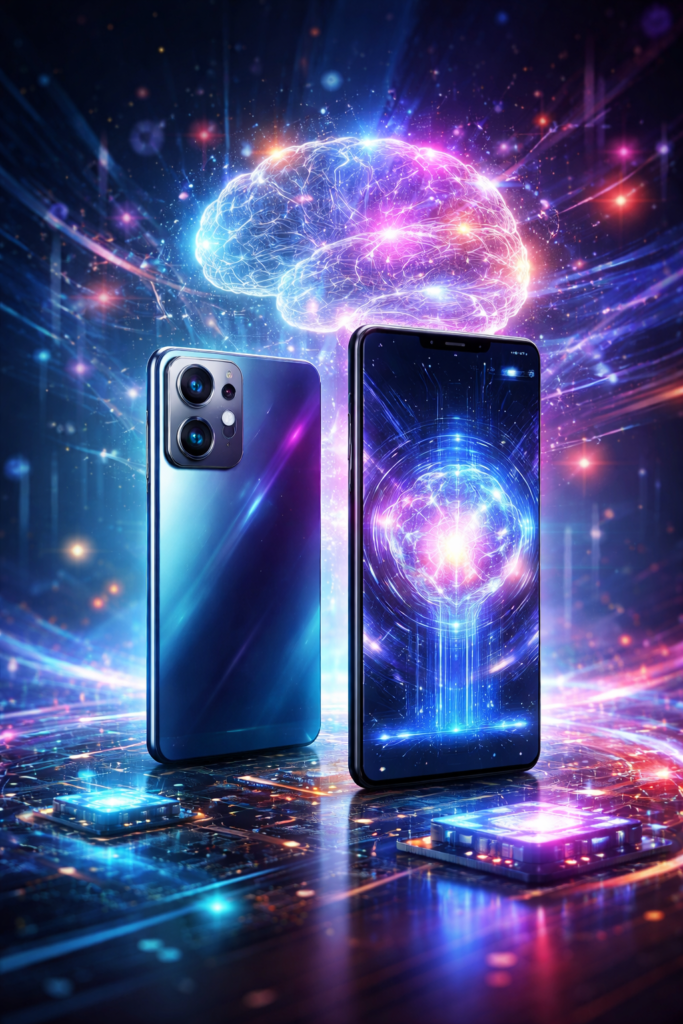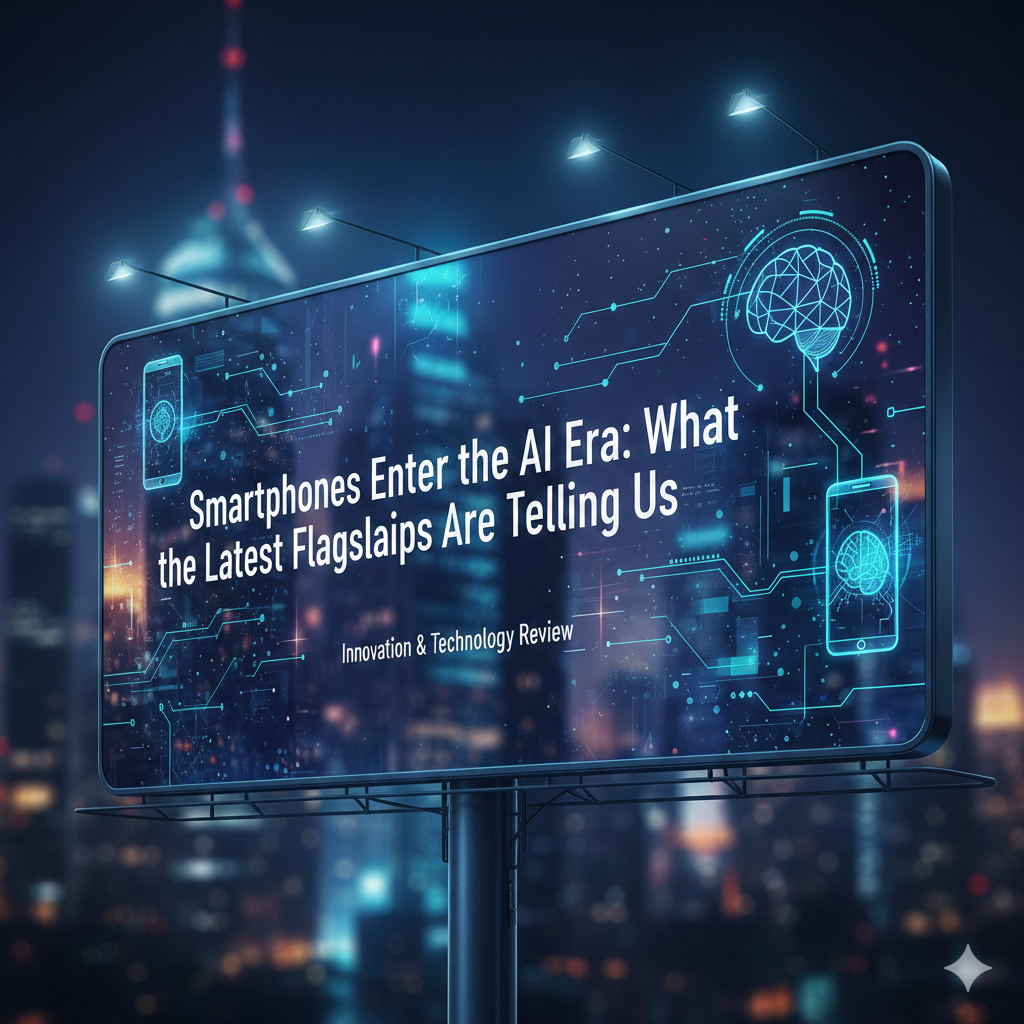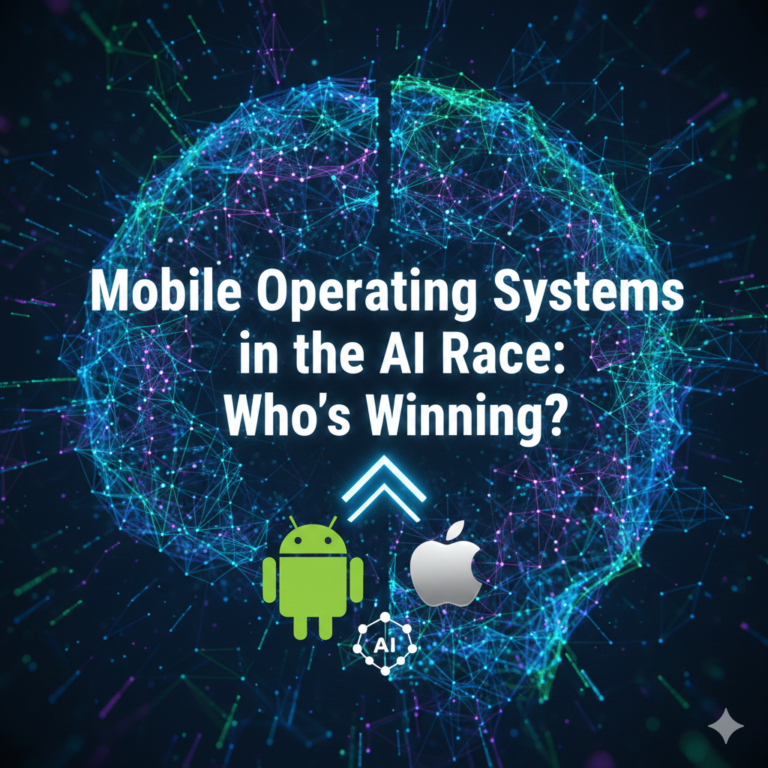Smartphones Enter the AI Era: What the Latest Flagships Are Telling Us
The smartphone industry is no longer driven by incremental upgrades in speed or camera megapixels alone. In 2025 and beyond, flagship devices are entering a new stage where artificial intelligence (AI) is central to innovation, daily use, and user experience. This shift isn’t just marketing hype — the latest devices from Samsung, Google, Apple, Honor, and others are redefining what it means to own a smartphone. They’re learning from you, anticipating your needs, and becoming personal assistants in ways that were science fiction just a few years ago.
AI is shaping the industry, driving competition, and forcing companies to rethink hardware, software, and ecosystems entirely. The result is smartphones that feel more intuitive, more capable, and more personal than ever.

The AI Transformation: From Features to Core Experience
Previously, AI in phones was limited to things like voice assistants or enhanced camera filters. Today’s AI has matured to the point where it touches nearly every core function of a smartphone — from communication and productivity to battery management and creative tools.
Here’s what’s changing:
- Contextual Intelligence: New AI systems analyze how you use your device — understanding intent, context, and habits — to offer suggestions, automate tasks, or streamline workflows.
- On‑Device Processing: Leading phones now run more AI directly on the device for better speed and privacy, rather than relying solely on cloud servers. This means features like real‑time transcription, translation, and image editing happen locally.
- Camera Evolution: Computational photography powered by AI is now standard, enabling automatic scene recognition, real‑time enhancements, intelligent object removal, and generative capabilities once only possible on desktops.
This evolution is not just about bells and whistles — it’s about making phones genuinely smarter, more efficient, and more helpful in daily life. It reflects a belief that the next leap in consumer tech isn’t just about hardware anymore but how seamlessly humans interact with machines.
Flagship AI Leaders: What Sets Them Apart
Different brands have taken distinct approaches to mobile AI, each with its own strengths and strategic direction.
1. Samsung: Galaxy AI Everywhere
Samsung’s latest flagships — particularly the Galaxy S25 Ultra series — position AI as a comprehensive ecosystem feature rather than a standalone tool. With the combined strength of Qualcomm’s AI engines and Google’s Gemini models, Samsung integrates AI across productivity, imaging, and communications.
Key AI capabilities include on‑device language translation, real‑time photo editing tools, automated note summarization, and adaptive battery management that learns your usage patterns.
Samsung’s expansive strategy even includes doubling the number of AI‑enabled devices to reach hundreds of millions of users — a clear sign that AI isn’t an add‑on, it’s a priority.
Why it matters: Samsung’s AI is designed to be everywhere you look — not hidden in one app, but woven through the entire user experience.
2. Google: The True AI‑First Smartphone
Google’s Pixel line — led by devices like the Pixel 9 Pro — has long emphasized AI as a defining identity. Powered by Google’s Tensor processors and Gemini Nano AI models, these phones focus on real‑time intelligence that drives productivity, communication, and creativity.
Notable features include instantaneous translation across languages, intelligent contextual assistance that works across apps, and deep integration with Android services.
Why it matters: Google treats AI as the core operating philosophy — the phone isn’t just smart, it understands things in context.

3. Apple: Intelligent and Private
Apple’s approach to AI is slightly different: deep integration with iOS and a strong emphasis on privacy. With Apple Intelligence powered by dedicated neural engines, iPhones offer AI that works locally without sending sensitive data to external servers.
Functions like intelligent photo editing tools, context‑aware Siri, on‑device generative features, and secure data processing showcase Apple’s dual focus on intelligence and trust.
Why it matters: Users who value privacy without sacrificing smart features find Apple’s model compelling and robust.
4. Honor & Others: Bold AI Innovation
Brands like Honor are pushing the envelope with ideas such as self‑evolving AI, where the software learns and personalizes itself beyond basic tasks. Features like YOYO Agent — a dedicated AI assistant — handle complex tasks like email composition and image recognition with a single tap.
Similarly, other manufacturers (OnePlus, Xiaomi, Realme) are incorporating advanced AI into camera systems, UI customization, and performance optimization — making intelligent features more accessible across price tiers.
Why it matters: This competitive innovation accelerates the pace of AI integration and brings smarter experiences to more users.
What Users Actually Experience with AI Phones
AI has made smartphones more intuitive and less manual — things that once required user input now happen automatically:
- Smart Communication: AI can summarize messages, suggest replies, and filter spam intelligently.
- Efficient Navigation: Your phone begins to “predict” where you’re going and what you need next.
- Intelligent Camera Tools: AI adjusts settings in real time, selects best shots, and even suggests creative edits.
- Battery & Performance Wisdom: Rather than consuming more power, AI now helps reduce wastage by learning usage patterns and optimizing resource allocation.
In many ways, it feels like your smartphone is thinking with you, not just responding to you.
Challenges & Realities of AI on Mobile
AI isn’t perfect. Some users report that aggressive AI features, especially memory usage, can impact overall performance if not optimized well.
In addition:
- AI models may require frequent updates and improvements.
- Vendors must balance useful intelligence with intrusive automation.
- Power consumption — while improving — still requires careful hardware management.
However, the leading ecosystem players are actively addressing these challenges through proprietary chips, on‑device engines, and smarter learning algorithms.
How AI Is Reshaping the Smartphone Market
The shift to AI isn’t just technological — it’s strategic. AI defines marketing narratives, user expectations, and even developer ecosystems. It’s now a major differentiator in purchasing decisions and product positioning.
What this means for consumers:
- Early adopters are already leveraging AI to boost productivity.
- Creators are relying on mobile AI for content creation workflows.
- Everyday users benefit from automation and personalization like never before.
What this means for brands:
- Companies that treat AI as central to the smartphone experience — not an afterthought — are winning in both sales and consumer loyalty.
- Partnerships between hardware vendors (like Samsung & Google) highlight that collaboration often beats isolated innovation.
Conclusion: The Future Is Intelligent
Today’s flagships show that AI no longer lives in isolated apps — it has become the operating fabric of the smartphone experience. From camera systems that understand scenes, to assistants that think ahead of you, to optimization that learns from your behavior, AI is redefining expectations for what a phone should do.
This trend is only accelerating: upcoming devices and even wearable companions are being engineered with ambient and always‑ready intelligence in mind — pointing to a future where your digital assistant feels truly personal and proactive.
In the AI era, smartphones are not just smarter — they are more human‑aware, adaptive, and indispensable than ever.







